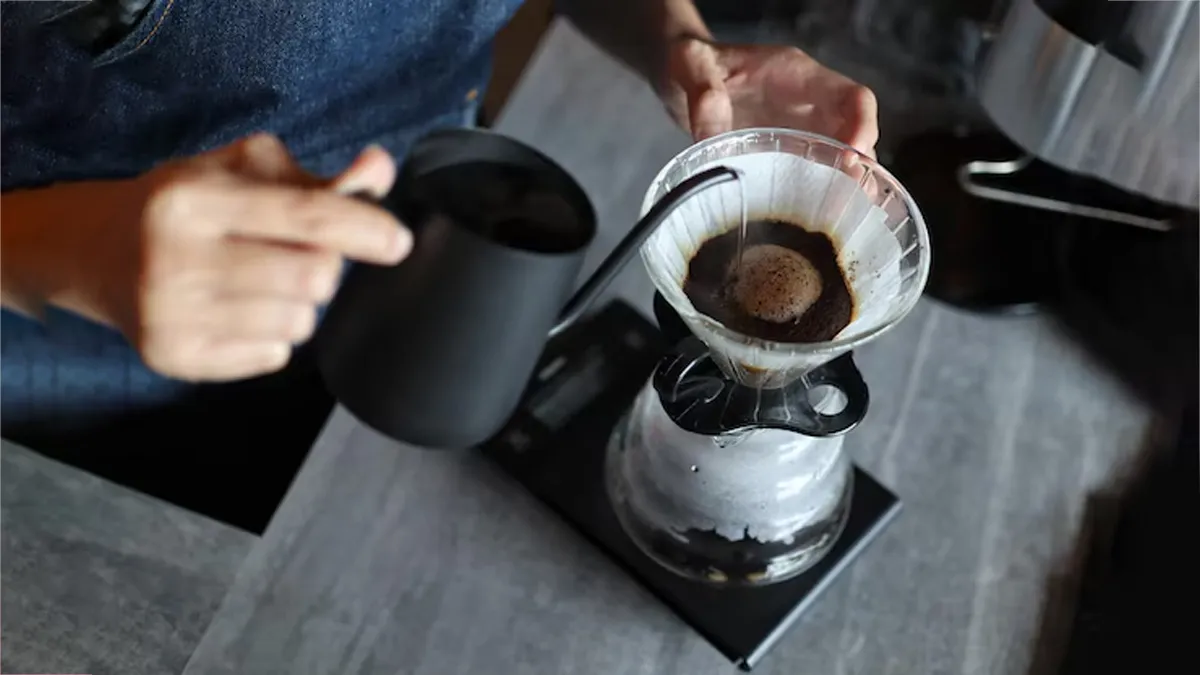
Does Drinking Coffee Increase Blood Pressure? Expert Explain Link Between Caffeine And Heart Health
How Caffeine Affects Your Blood Pressure: “Does my morning coffee affect my blood pressure?” If you’ve ever asked yourself this, you’re not alone. Coffee is a part of daily life for millions, but questions about its effects on heart health are common. We connected with Dr Binay Kumar, Senior Consultant – Interventional Cardiology & Electrophysiology, Yatharth Super Speciality Hospital, Sector-88, Faridabad, to break down the science behind caffeine and blood pressure. She explains how coffee can cause a temporary rise in blood pressure, why some people are more sensitive than others, and how regular consumption may impact your heart in the long term.
Whether you’re a daily coffee lover or just enjoy an occasional cup, understanding these effects can help you make informed choices and continue to enjoy your favourite brew safely:
How Coffee Affects Blood Pressure?
Dr Binay Kumar explains, “Coffee contains caffeine, a natural stimulant that can temporarily raise blood pressure. Caffeine blocks the effects of adenosine, a hormone that helps blood vessels relax. This can cause the blood vessels to narrow and the heart to beat faster, leading to a short-term rise in blood pressure.

For most healthy individuals, this rise is usually mild and temporary. However, in people who are sensitive to caffeine, or those already living with high blood pressure (hypertension), the effects can be more significant.”
Short-Term Effects of Coffee On Blood Pressure
When you consume coffee, the caffeine acts as a stimulant to the central nervous system. This stimulation can lead to a temporary increase in blood pressure. Harvard Health research indicates that systolic blood pressure can rise by approximately 3–4 mmHg, while diastolic pressure may increase by 2–3 mmHg within 30 to 60 minutes of drinking coffee.
Dr Gupta notes, “Studies show that consuming coffee may raise blood pressure by about 5–10 mmHg in the first hour after intake, particularly in people who don’t consume caffeine regularly.”
However, those who are sensitive to caffeine or consume it infrequently may experience more pronounced effects.
Long-Term Impact: Does Regular Coffee Consumption Affect Blood Pressure?
The long-term effects of coffee on blood pressure are less clear. Some studies suggest that habitual coffee drinkers develop a tolerance to caffeine, resulting in no significant long-term increase in blood pressure.

However, Dr Gupta says, “Regular coffee drinkers often develop a tolerance, meaning the blood pressure rise becomes less noticeable over time.” He advises that while moderate coffee consumption is generally safe for most people, those with existing hypertension should monitor their blood pressure regularly.
Don't miss: How Is Your Daily Cup Of Chai Harming Your Health? Expert Explains
Link Between Caffeine And Heart Health
Caffeine can boost noradrenaline and norepinephrine, potentially increasing heart rate and blood pressure in some people. This can lead to temporary spikes in heart rate and blood pressure.

National Center for Biotechnology Information (NCBI) states, “Researchers know that caffeine blocks adenosine receptors, thus reducing the ability of the coronary arteries to improve their flow commensurate with the increased myocardial demand of exercise. This could perhaps result in supply-demand ischemia.” (meaning inadequate supply of blood).
Don't miss: High Blood Pressure: Expert Shares 7 Early Signs You Should Never Ignore And Who’s At Higher Risk
Recommendations For Safe Coffee Consumption
For most healthy adults, consuming up to 400 milligrams of caffeine daily (as established by the US Food and Drug Administration (FDA)), equivalent to about 8-ounce cups of brewed coffee, is considered safe.
Dr Gupta offers the following tips for safe coffee consumption:
Limit coffee intake to 1-2 cups per day if you have high blood pressure.
Be aware of the total caffeine content in your beverages and snacks.
Avoid drinking coffee just before exercise or stressful situations, when blood pressure naturally rises.
Pay attention to how your body reacts after consuming coffee.
Opt for decaffeinated coffee if you are sensitive to caffeine.
If you have high blood pressure or heart conditions, discuss your caffeine consumption with your doctor.
Understanding your body's response to caffeine and consulting with your cardiologist/ healthcare professionals can help you enjoy your coffee without compromising your heart health.
For more such stories, stay tuned to HerZindagi.
Image credit: Freepik
Also watch this video
Herzindagi video